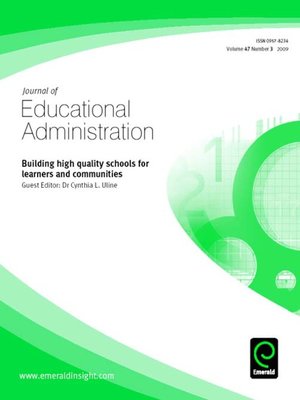Journal of Educational Administration, Volume 47, Issue 3
ebook ∣ Journal of Educational Administration
By Dr. Cynthia Uline

Sign up to save your library
With an OverDrive account, you can save your favorite libraries for at-a-glance information about availability. Find out more about OverDrive accounts.
Find this title in Libby, the library reading app by OverDrive.



Search for a digital library with this title
Title found at these libraries:
| Library Name | Distance |
|---|---|
| Loading... |
As educators, researchers, policy makers, and publics consider our schools' capacity to ensure accountability and excellence in curriculum, instruction, and assessment for all students, rarely do they foreground the physical environment within which these activities take place. School buildings stand as a physical manifestation of the educational enterprise, and in some cases, they reflect persistent disparities in investment across locations and communities (BEST, 2006). Even as some challenge the relative impact of such investments on student achievement when compared with other factors, such as highly qualified teachers and effective educational leaders, common sense and mounting empirical evidence suggest that either/or decisions about where best to invest our resources may be shortsighted (Crampton, 2009). Rather, as we attempt to identify the conditions that foster excellence, it behooves us to consider the human, social, technical, and physical dimensions of our schools' capacity.







